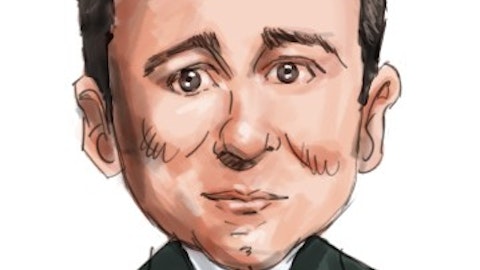Nelson Peltz’s Trian Partners and Rehan Jaffer‘s H Partners Management have each received important backing in their respective proxy fights from influential proxy advisory firm Institutional Shareholder Service (ISS). In Trian’s case, the advisory firm this week urged shareholders to vote for two of Trian’s director nominees for the board of E I Du Pont De Nemours And Co (NYSE:DD), including Peltz himself, while withholding their votes for Trian’s other two nominees and the nominees put forward by DuPont. In the case of H Partners, ISS also urged Tempur Sealy International Inc (NYSE:TPX) shareholders to vote along with the fund for the removal of the company’s chairman, chief executive, and one other director and the advisory has received the support of two other firms, Glass Lewis & Co. and Proxy Mosaic, LLC.

We’ll start with the contentious proxy battle between Peltz and E I Du Pont De Nemours And Co (NYSE:DD), which dates back to earlier this year after Peltz, who owns more than 24.3 million shares, nominated four directors t0 the board of the chemicals giant and tried to pursue a split of the company. Among other things the billionaire activist investor expressed disappointment with DuPont’s sliding earnings and missed targets, its limited organic growth compared to its peers in multiple sectors, and the unaccountability of its management; factors which have led to it being one of the least popular Dow stocks.
Trian was rebuffed by DuPont, which nominated its own candidates instead, and countered that its results during a turnaround period have been strong. The stock of E I Du Pont De Nemours And Co (NYSE:DD) is up by more than 67% since the start of 2013. Furthermore, after a lengthy presentation by Trian that claimed splitting the company would result in significant cost-savings, DuPont countered with its own presentation, which blasted Trian’s claims, saying such a split would cost the company billions.
In its analysis of the proxy fight, ISS sided with Trian in saying that the company has underperformed and that the strong stock is not being driven by fundamentals. It further agreed that rather than be held accountable and seek solutions for its operating deficiencies, the board has instead continued to cloud over issues in its communication with shareholders. While ISS did not definitely state that DuPont should or should not be broken up, it believes that the board does need a shakeup to address some the governance issues plaguing the company.
In its own response to ISS’s decision and statements, DuPont insisted that ISS reached the wrong conclusion and that it didn’t factor in elements such as Trian’s potential value-destructive breakup plans. Shares of DuPont have made big gains this week, however, showing a positive sentiment on Peltz’s side when it comes to shareholders, who will cast their proxy votes at DuPont’s Annual Meeting on May 13. Among those shareholders are Phill Gross and Robert Atchinson’s Adage Capital Management and John A. Levin’s Levin Capital Strategies.
ISS likewise supported H Partners Management in its proxy fight against mattress supplier Tempur Sealy International Inc (NYSE:TPX), in which it has a 10% stake consisting of more than 6.07 million shares. ISS last week urged shareholders to vote to remove the three directors targeted by H Partners, including both its CEO and chairman. ISS agreed with H Partners that CEO Mark Sarvary bears responsibility for the company’s disastrous plunge during the first half of 2012 when its stock shed 75% of its value over a two month period, from levels which it has failed to return to in the three years since.
Tempur Sealy International Inc (NYSE:TPX) likewise responded to ISS’s decision with disappointment, claiming the advisory firm is backing an activist investor which has no plan for value creation for the company going forward. However, ISS is not alone as proxy advisory firms Glass Lewis & Co. and Proxy Mosaic, LLC also expressed their support for H Partners, each also issuing reports that urge shareholders to vote for the removal of the three directors at Tempur Sealy’s 2015 Annual Meeting of Shareholders, which will take place on May 8.
H Partners had the largest position and the greatest exposure to Tempur Sealy among the funds in our database, followed by Robert Joseph Caruso’s Select Equity Group with 5.77 million shares.
Following the moves of activist funds and their campaigns is important because it is a very specific and focused strategy in which the investor doesn’t have to wait for catalysts to realize gains in its holding. A fund like Trian can simply create its own catalysts by pushing for them through negotiations with the company’s management and directors. In recent years, the average returns of activists’ hedge funds has been much higher than the returns of an average hedge fund. Furthermore, we believe do-it-yourself investors have an advantage over hedge fund investors because they don’t have to pay approximately 2% of their assets and 20% of their gains every year to compensate these hedge fund managers. Soon, we’ll be releasing a new quarterly newsletter written by former activist hedge fund analyst Michael Bland that tracks 10 or so activist campaigns at any given time.
Disclosure: None




